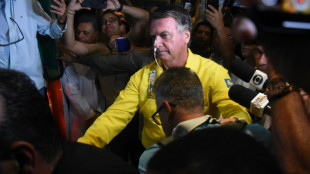
-
 Auto shares surge on tariff reprieve hopes
Auto shares surge on tariff reprieve hopes
-
Sudan war drains life from once-thriving island in capital's heart
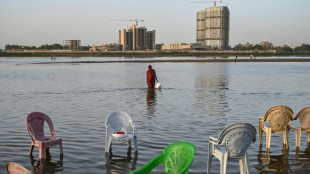
-
 Trump trade war casts pall in China's southern export heartland
Trump trade war casts pall in China's southern export heartland
-
Ukraine's Sumy prepares to bury victims of 'bloody Sunday'
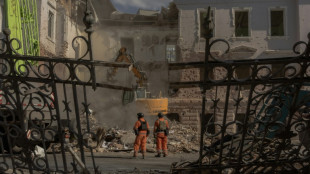
-
 Iraq sandstorm closes airports, puts 3,700 people in hospital
Iraq sandstorm closes airports, puts 3,700 people in hospital
-
French prisons targeted with arson, gunfire: ministry
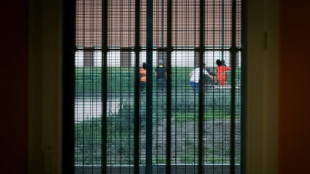
-
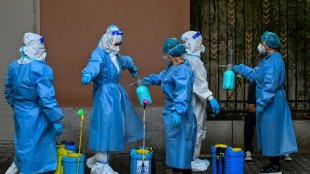 Pandemic treaty talks inch towards deal
Pandemic treaty talks inch towards deal
-
Employee dead, client critical after Paris cryotherapy session goes wrong

-
 Howe will only return to Newcastle dugout when '100 percent' ready
Howe will only return to Newcastle dugout when '100 percent' ready
-
Journalist recalls night Mario Vargas Llosa punched Gabriel Garcia Marquez

-
 Sudan marks two years of war with no end in sight
Sudan marks two years of war with no end in sight
-
Vance urges Europe not to be US 'vassal'

-
 China tells airlines to suspend Boeing jet deliveries: report
China tells airlines to suspend Boeing jet deliveries: report
-
Stocks rise as stability returns, autos surge on exemption hope

-
 Harvard sees $2.2bn funding freeze after defying Trump
Harvard sees $2.2bn funding freeze after defying Trump
-
'Tough' Singapore election expected for non-Lee leader
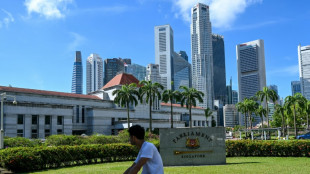
-
 Japan orders Google to cease alleged antitrust violation
Japan orders Google to cease alleged antitrust violation
-
Stocks rise as stability returns, autos lifted by exemption hope
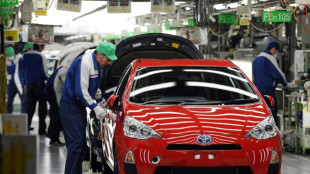
-
 Malawi's debt crisis deepens as aid cuts hurt
Malawi's debt crisis deepens as aid cuts hurt
-
Danish brewer adds AI 'colleagues' to human team

-
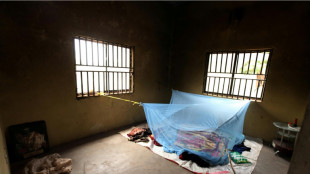 USAID cuts rip through African health care systems
USAID cuts rip through African health care systems
-
Arsenal target Champions League glory to save season

-
 Kane and Bayern need killer instinct with home final at stake
Kane and Bayern need killer instinct with home final at stake
-
Mbappe leading Real Madrid comeback charge against Arsenal

-
 S. Korea plans extra $4.9 bn help for chips amid US tariff anxiety
S. Korea plans extra $4.9 bn help for chips amid US tariff anxiety
-
Xi's Vietnam trip aiming to 'screw' US, says Trump
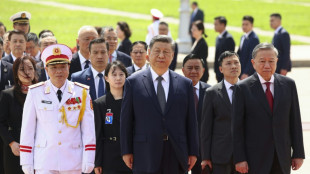
-
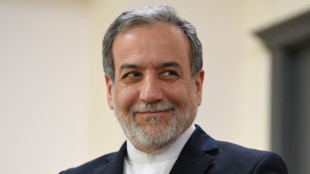 Iran's top diplomat to visit Russia after US nuclear talks
Iran's top diplomat to visit Russia after US nuclear talks
-
China accuses US spies of Asian Winter Games cyberattacks

-
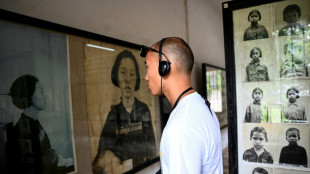 Cambodia genocide denial law open to abuse, say critics
Cambodia genocide denial law open to abuse, say critics
-
Holocaust remembrance and Gaza collide in Brussels schools

-
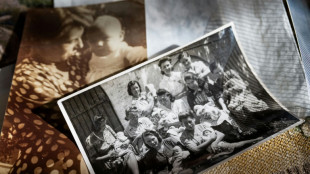 The miracle babies who survived Ravensbruck
The miracle babies who survived Ravensbruck
-
Asian stocks mixed as stability returns, autos lifted by exemption hope
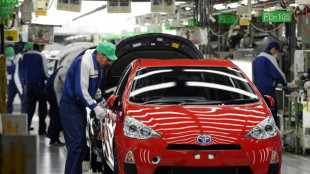
-
 Disarming Lebanon's Hezbollah no longer inconceivable: analysts
Disarming Lebanon's Hezbollah no longer inconceivable: analysts
-
London hosts talks to find 'pathway' to end Sudan war

-
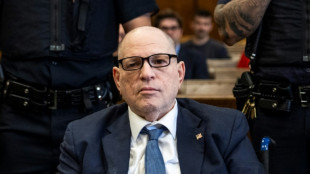 Harvey Weinstein New York retrial for sex crimes to begin
Harvey Weinstein New York retrial for sex crimes to begin
-
Meta news ban intensifying Canadians' legacy media break

-
 All Black wing Tele'a announces Japan switch
All Black wing Tele'a announces Japan switch
-
Chinese EV battery giant CATL posts 33% surge in Q1 profit

-
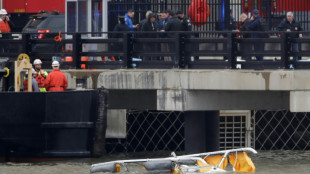 US grounds helicopter company behind fatal New York tour
US grounds helicopter company behind fatal New York tour
-
China's economy likely grew 5.1% in Q1 on export surge: AFP poll

-
 S. Korea govt plans $4.9 bn more help for semiconductors as US tariff risk bites
S. Korea govt plans $4.9 bn more help for semiconductors as US tariff risk bites
-
Harvard sees $2.2 billion in funding frozen after defying Trump

-
 Israel demands hostage release for Gaza ceasefire: Hamas
Israel demands hostage release for Gaza ceasefire: Hamas
-
Baylink Biosciences To Highlight New Preclinical Data At The American Association For Cancer Research (AACR) Annual Meeting

-
 Elvictor Group Issues 2024 Annual Report
Elvictor Group Issues 2024 Annual Report
-
Guardian Metal Resources PLC - Significant Gallium Potential Identified

-
 Birkenstock Announces Fiscal Second Quarter 2025 (Ended March 31, 2025) Results Date and Conference Call
Birkenstock Announces Fiscal Second Quarter 2025 (Ended March 31, 2025) Results Date and Conference Call
-
Meridian Drills Into Shallow High-Grade Cu-Au-Zn & Ag Massive to Semi-Massive Sulphides on the Open Western Limit of Santa Helena

-
 The DEA Is Defying Supreme Court Axon in MMJ's Cannabis Case - Is DEA a rogue agency?
The DEA Is Defying Supreme Court Axon in MMJ's Cannabis Case - Is DEA a rogue agency?
-
Formation Metals Deepak Varshney to Be Featured on Radius Research's Pitch, Deep Dive and Q&A Webinar on April 16th, 2025 to Discuss the N2 Gold Property with a Historical 877,000 oz Gold Resource


Princess Catherine cancer: What is preventative chemotherapy?
Catherine, Princess of Wales, announced on Friday that she is undergoing preventative chemotherapy to treat cancer discovered after she had abdominal surgery.
While the exact situation is difficult to determine because the 42-year-old princess did not disclose the nature of the cancer, here is an explanation of preventative chemo.
- What is chemotherapy? -
Chemotherapy is the use of powerful drugs to stop cancerous cells from growing, dividing and creating more cells. There are a large number of kinds of chemotherapy, depending on the cancer, how far it has spread and the treatment regime.
Because these treatments cannot distinguish between different cells, they end up killing some cells that do good, such as white blood cells, causing some side effects.
- Why preventative? -
Preventative chemotherapy is often used after surgery to "decrease the likelihood" that cancer will return, Kimmie Ng, an oncologist at Dana-Farber Cancer Institute in the United States told AFP.
Even after successful surgery, "microscopic cancer cells can remain lurking in the body and can't be detected by current tests," said Lawrence Young, molecular oncology professor at the University of Warwick.
It is "a bit like mopping a floor with bleach when you've spilt something on it", Andrew Beggs, a cancer surgeon at the University of Birmingham, told the Science Media Centre.
- Side effects? -
How chemo affects people can vary depending on the particular cancer, treatment and person.
But common side effects include fatigue, nausea, diarrhoea, loss of appetite and an increased risk of getting an infection.
Some rarer, more severe side effects can include sepsis and damage to vital organs.
- How long? -
Treatment schedules again can vary widely, but a traditional chemo regime would be delivered in four to six blocks, said Bob Phillips, paediatric oncology professor at the University of York.
A cycle may last 21 days and "consists of a day or few days of chemo, then time for the body to recover from it," Phillips said.
Regimes of preventative chemo tend to last between three to six months.
It can take people weeks or months to recover from the treatment.
- More cancer among young people? -
Beggs emphasised that "young onset cancer is by no means rare".
"I run a clinic for early-onset cancer in adults and we are seeing more and more people in their 40s with cancer," he said.
Shivan Sivakumar, an oncology expert at the University of Birmingham said "there is an epidemic currently" of people under 50 getting cancer.
"It is unknown the cause of this, but we are seeing more patients getting abdominal cancers," he said.
Ng pointed out that research from the American Cancer Society released this year showed that younger adults were the only age group in which cancer increased between 1995 and 2020.
"There is an urgent need for research into the causes of this uptick," Ng said.
Research published in the BMJ journal last week said that cancer cases among people aged 35-69 in Britain also rose over the last quarter of a century.
But deaths from cancer fell by a significant margin.
"The younger you are, the more likely you are to tolerate chemotherapy well," Sivakumar said.
Younger people also more likely to survive cancer.
A combination of early diagnosis and better treatments has led to "survival rates doubling in the last 50 years", Young said.
"An incidental finding of cancer during surgery for other conditions is often associated with the tumour being detected at an early stage when subsequent chemotherapy is much more effective," he added.
- Check yourself? -
Michelle Mitchell, chief executive of Cancer Research UK, said that such high-profile cancers can serve as a reminder for people to think about their own health.
"If people spot something that's not normal for them or isn't going away, they should check with their GP," she said.
"It probably won't be cancer. But if it is, spotting it at an early stage means treatment is more likely to be successful."
D.Kaufman--AMWN
